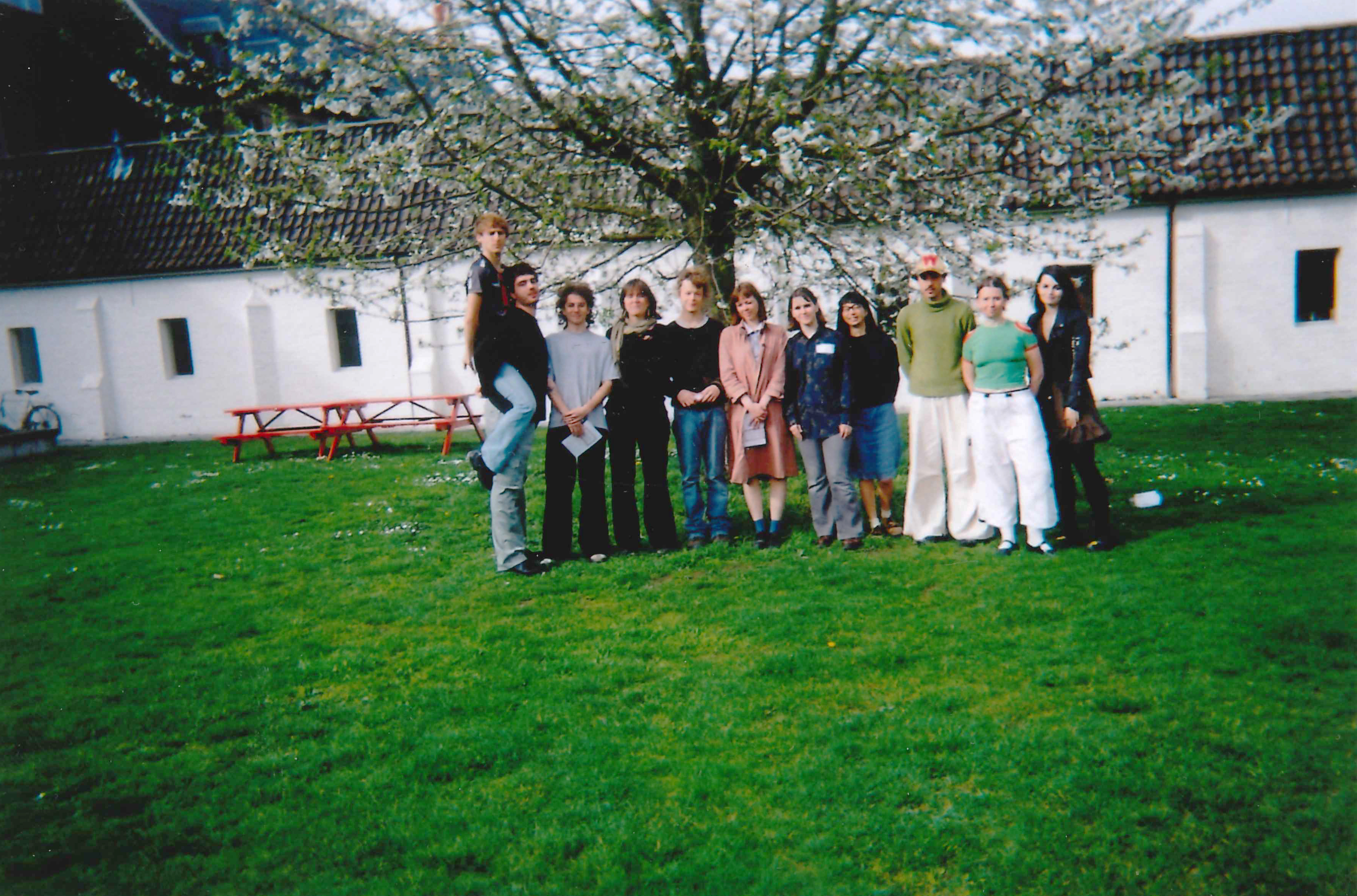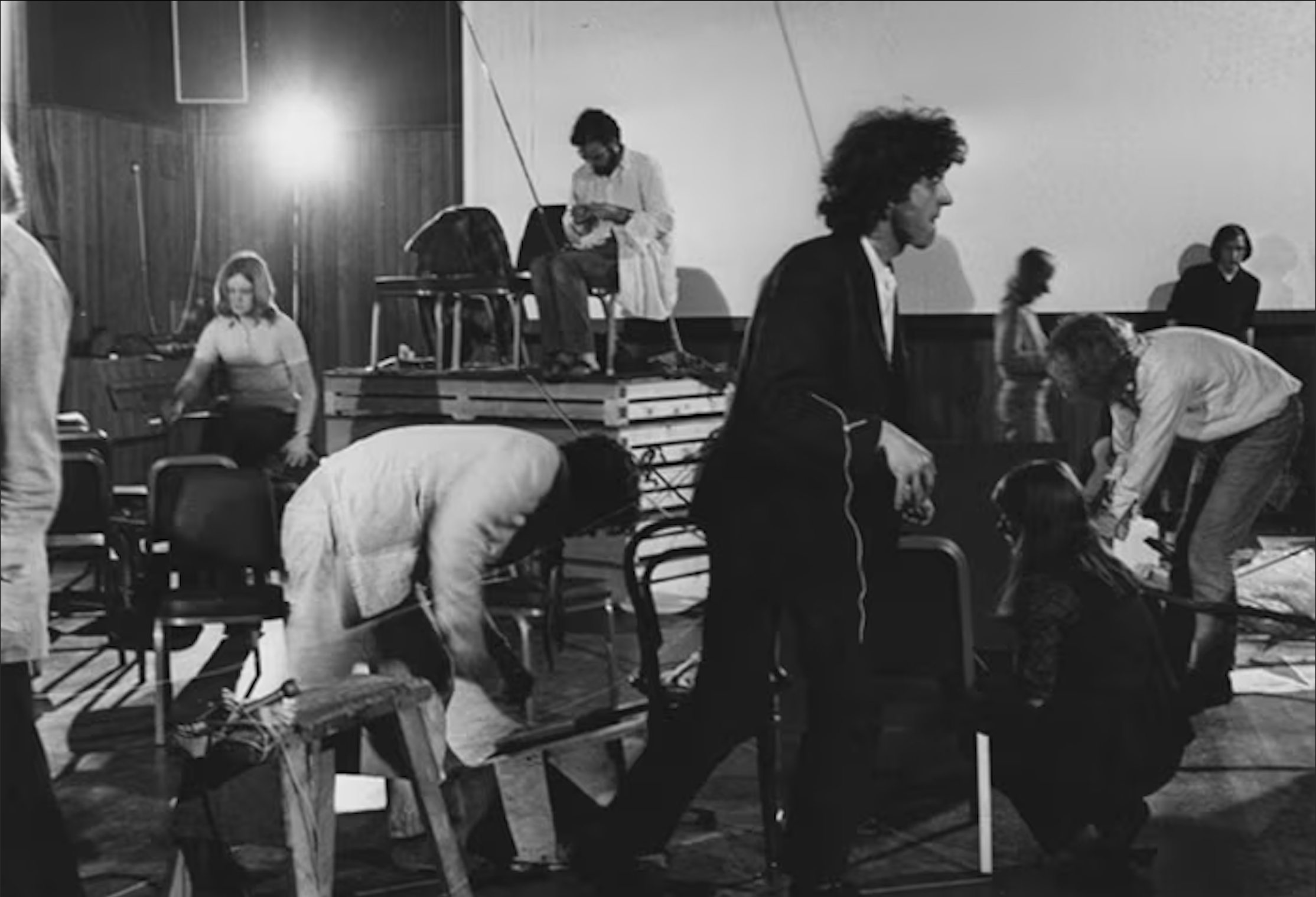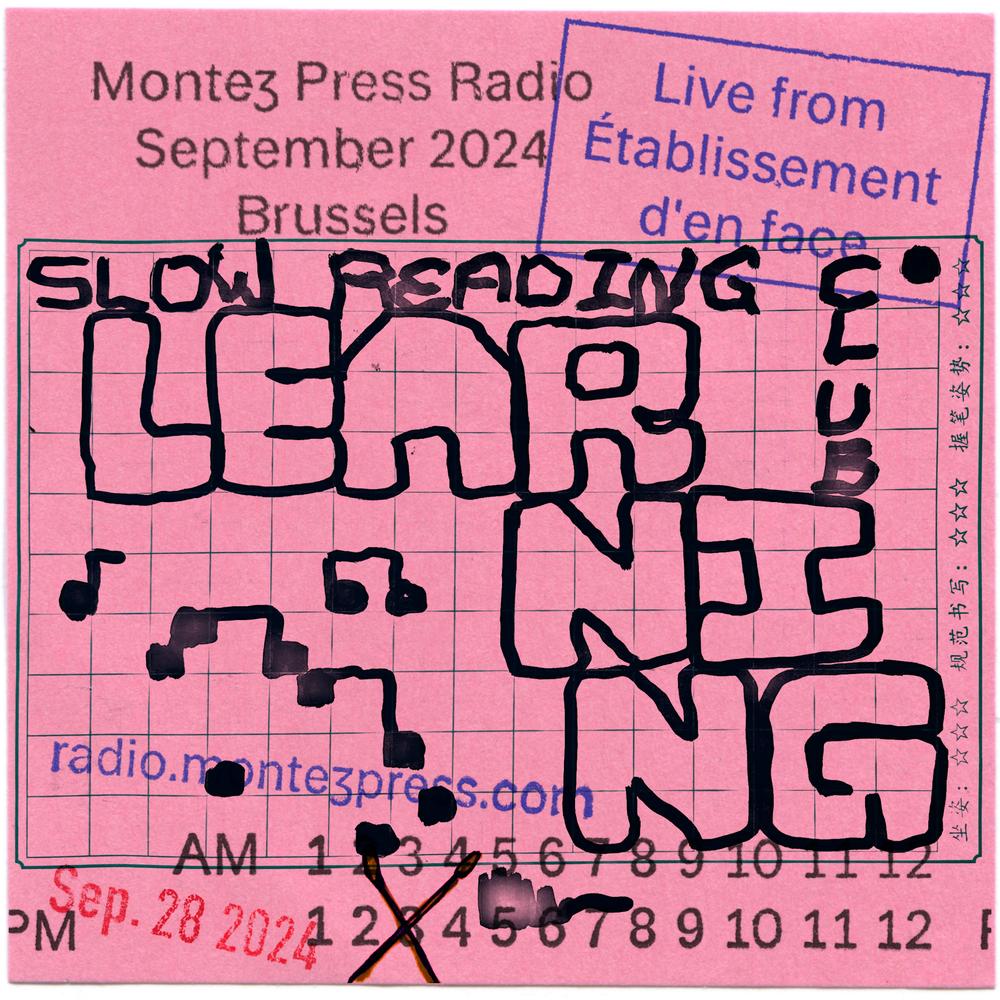Wednesday, October 2, 2024 by DJ Uncertain #art #music
Slow Reading Club: Students in Ghent rehearse Cornelius Cardew's Marxist choral work from the 1970s
Henry Anderson:
"For this segment, I’m going to play a recording of a student choir.
I put this choir together, together with the other half of Slow Reading Club, Bryana Fritz, and together with our frequent collaborator Charlie Usher for a project in Ghent in the first half of the year.
The choir is mostly made up of art students in their early 20s. Most have no experience with singing and almost all are unable to read music. They sing a kind of “cover version” of a 1971 choir work by Cornelius Cardew, though we altered the piece our needs and the interests of the students involved.
In 1974 Cornelius Cardew, the British marxist composer, gave a performance of several of his most seminal works. Accompanying this performance, as a second act, he gave a lecture on what he saw as the works’ shortcomings. Principal amongst their failures, was an inability to escape the dynamics of bourgeois art consumption. Despite his autocritique, Cardew did not choose to reform the works, nor did he take them out of circulation, but decided instead to use the circulation of his works to mount a critique of their functions. The work plus the critique of the work. The work as a container for its own criticism.
Over four evenings in Ghent, together with a chorus of students from the art school, we rehearsed a cover version of one of Cardew’s choir works; Paragraph 7 of The Great Learning, from 1971. The score calls for amateur singers. It functions as an open set of rules and relations between singers, both spatially and vocally. Rhythm is defined by the breath lengths of the singers and harmony is a result of each person adjusting to their neighbours. There is no requirement to read music notation or to be able to accurately sustain a pitch. The rehearsal of Paragraph 7 is not secondary to the piece; the act of gathering to speak and collectively negotiate the score is the piece more so than any specific sound image produced by singing. Sometimes the principal value of a public performance is that it produces the need for rehearsal.
What is interesting in practicing the score (rather than studying it) is the strange, collective attention it requires to enact. The virtual model of the score that exists in reading is almost impossible to sing, especially for the amateur singers that it calls for. But in earnestly attempting to realise it, something else happens. In many ways, rehearsing the piece became for us an exercise in getting comfortable with dissonance. It served as a continual reminder that it is possible to sustain an intensified being together without arriving at (even by avoiding) resolution and consensus. How this acceptance unfolds through rehearsal, in relation to the score, might be said to constitute the politics of the piece.
In 2011 Aaron Swartz, an associate researcher at MIT, was apprehended in a supply closet where he had left a laptop running a custom Python script, programmed to automatically download tens of thousands of .pdfs from JSTOR. JSTOR is a proprietary library for academic writing, accessible by subscription. In the ensuing trial, federal prosecutors argued that these files were destined for mass distribution, that Swartz had planned to impinge on JSTOR’s profits by making all the files freely available online. In making their case, they relied heavily on “The Guerrilla Open Access Manifesto,” a collaborative text that Swartz had written with others and published on his blog. There’s a specifically ‘online’ utopianism to the thinking in this text: the idea that knowledge can be acquired by anyone with full access to information. In 2013, the threat of jail time, federal felony records, and an enormous fine eventually prompted Swartz to commit suicide, and he quickly became a martyr for activists committed to the cause of open access. At the time of his death Swartz was 26.
When we rehearsed The Great Learning in Ghent, we did away with Cardew’s original text (a setting of Pound’s translation of Confusious), and replaced it with fragments of “The Guerrilla Open Access Manifesto”. On the one hand, a model of learning as the bodily rehearsal of relations; on the other, education as the uninhibited combination of informations. The idea is not to heroicize either of these two models for self-education, but to stage their meeting. Maybe one as form, maybe another as content. There’s difference in this meeting, there’s mathematically unbridgeable space between them. Statistically, we knew that."
Slow Reading Club (SRC) is a semi-fictional reading group initiated by Bryana Fritz and Henry Andersen in late 2016. The group deals in constructed situations for collective reading. SRC looks at, probes, and interrupts ‘readership’ as a way to stimulate the contact zones between reader and text, text and text, reader and reader.


